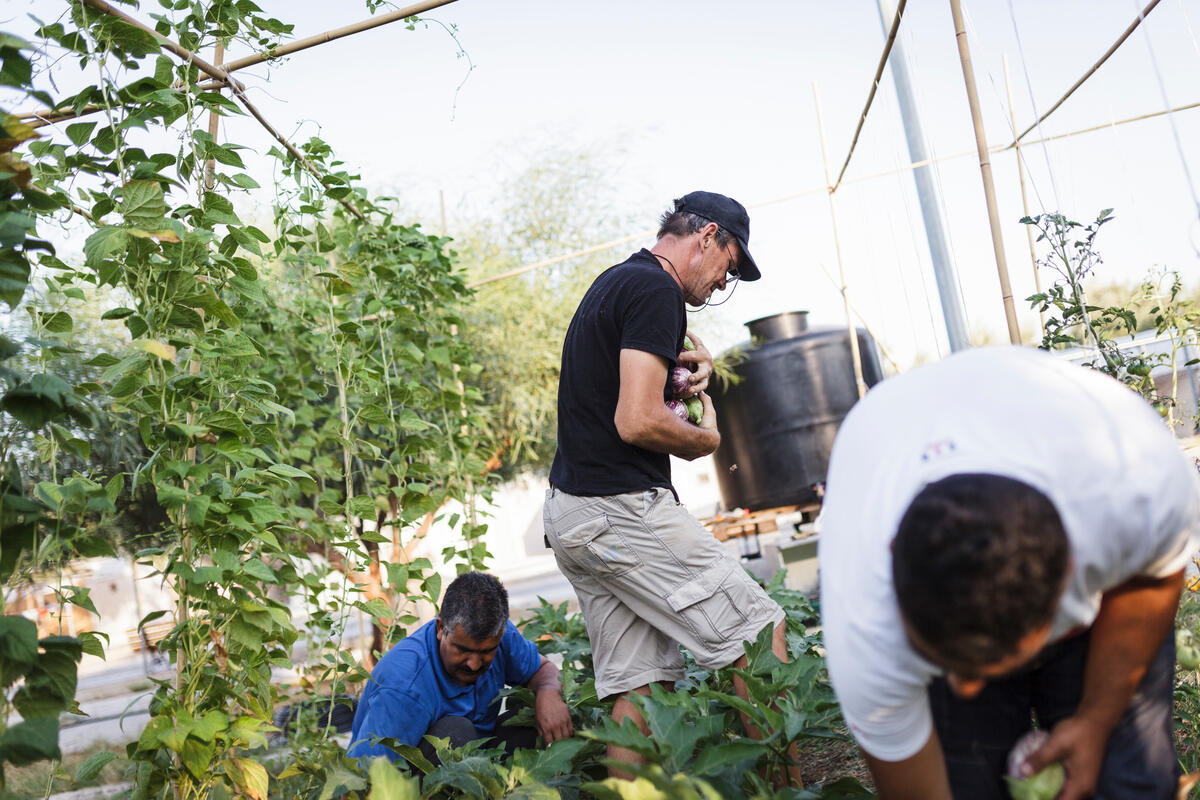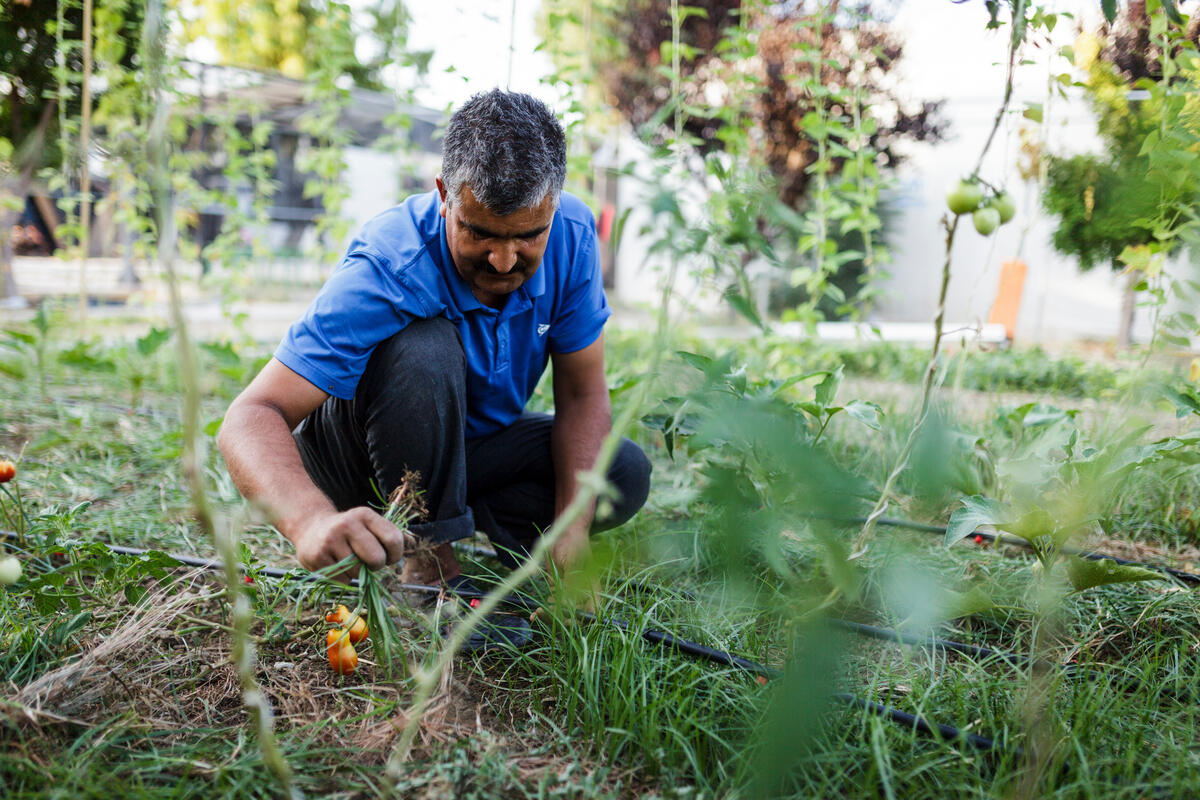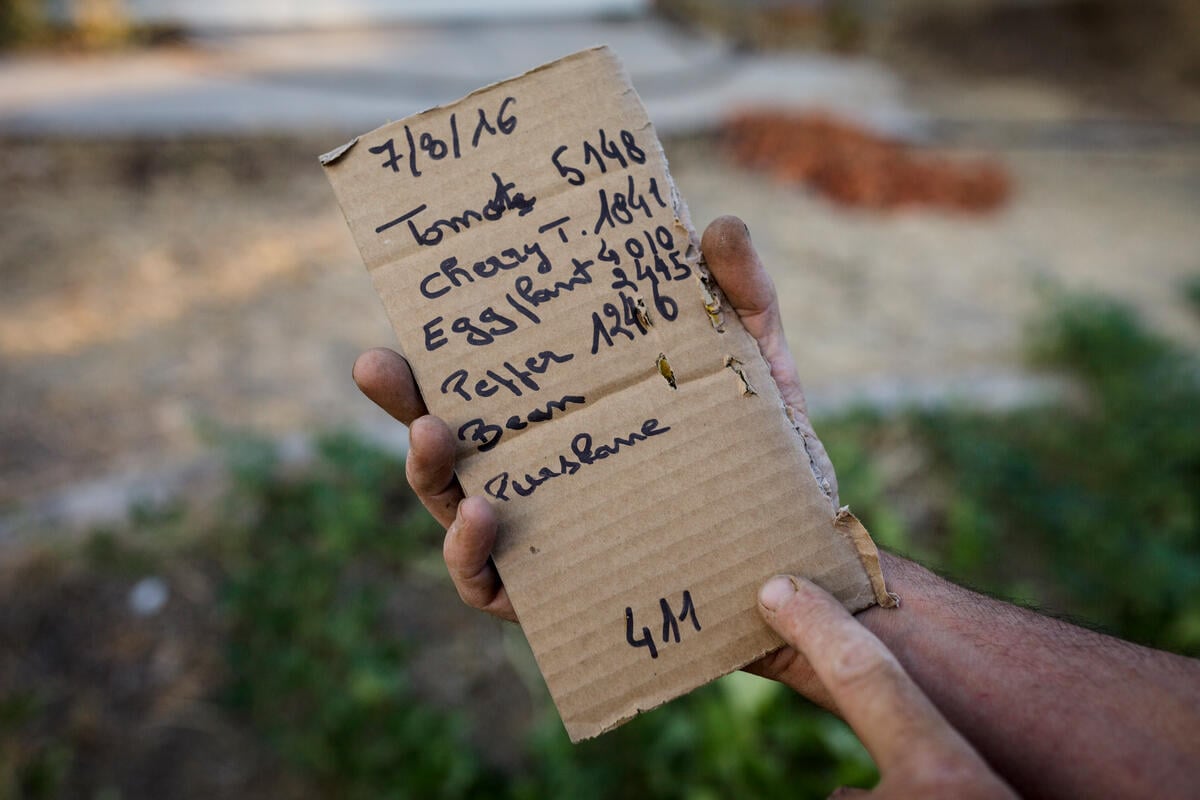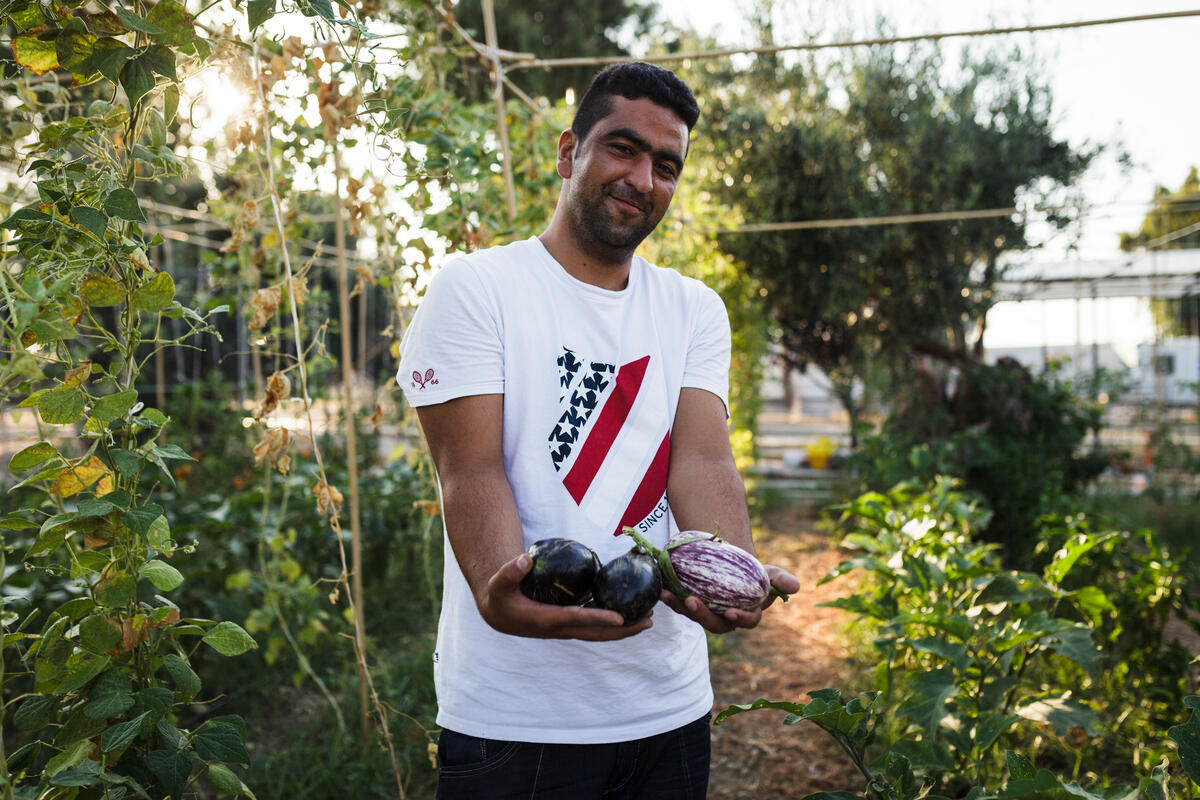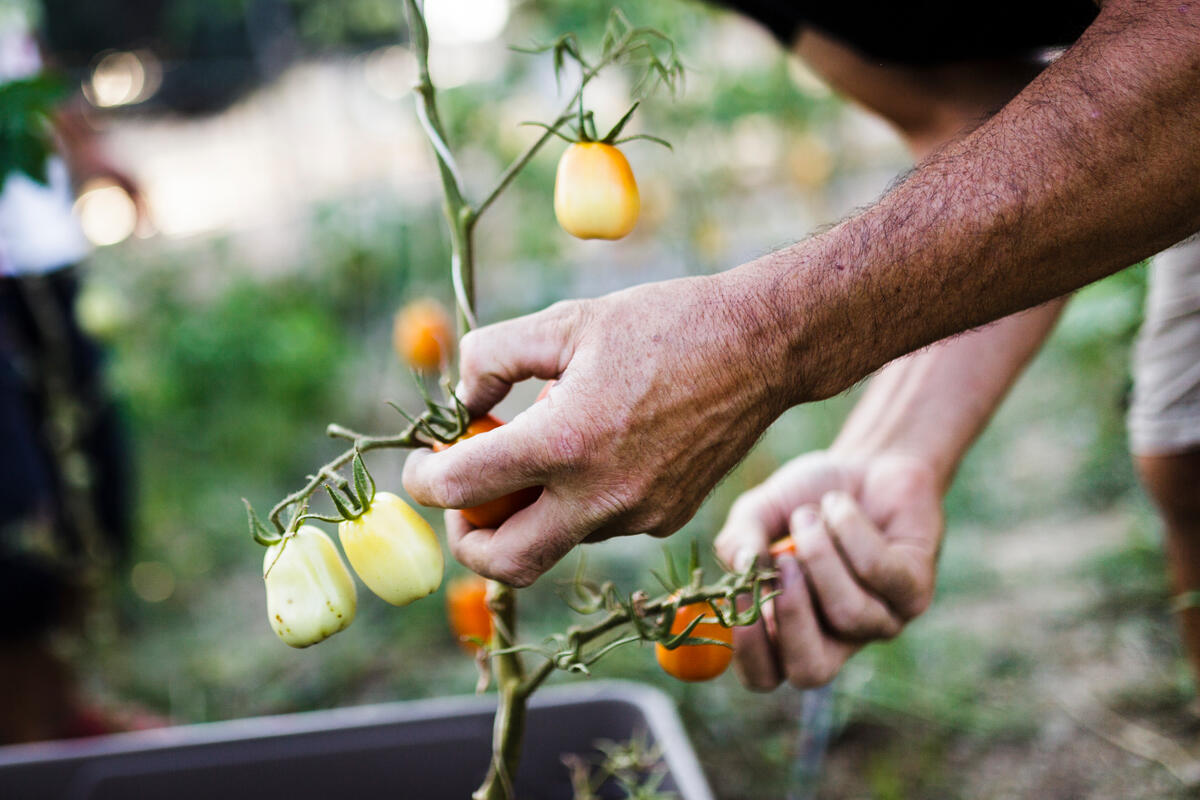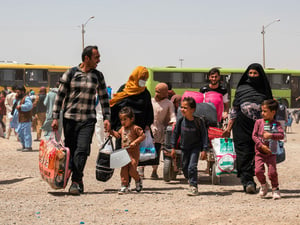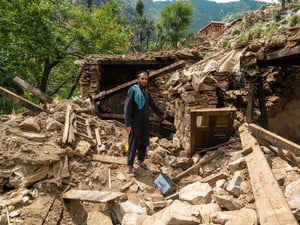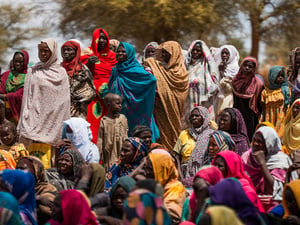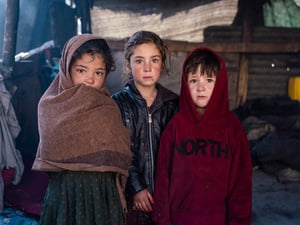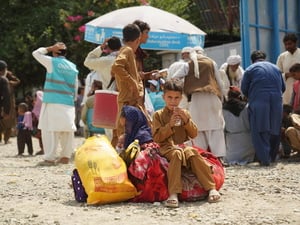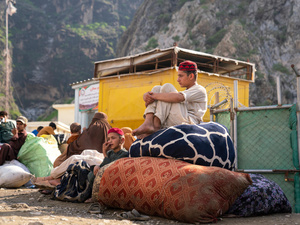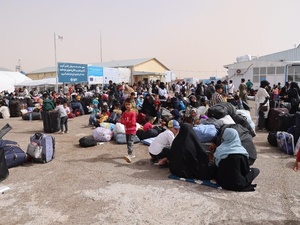Afghan garden keeps idle hands busy, produces food for hosts

Afghan garden keeps idle hands busy, produces food for hosts
Fazel Ahmad hunches over a long row of green beans, carefully picking weeds by hand. Beside him, bright-red tomatoes the size of his fist hang heavily from their stems.
For Fazel, a 43-year-old father and former shoe salesman from Afghanistan, and several other refugees and asylum-seekers living in Kara Tepe, an open refugee accommodation site, the small community garden has become a sanctuary. The mini-oasis of green breaks up the monotony of refugee life on Lesvos and gives them a sense of purpose.
"I like to grow vegetables, and keeping busy and working is a good thing for man," Fazel explained.
The garden is an initiative of Humanitarian Support Agency (HSA), a small non-profit organization, and an operational partner of UNHCR, the UN Refugee Agency, in Greece. In addition to green beans and tomatoes, participants also grow eggplants (aubergines), green peppers, watermelons and onions.
"It's an opportunity for people to invest in the place where they live, since they'll be here for a while," said Shareen Elnaschie, HSA's site planner at Kara Tepe. "And to see something growing and pick it – the psychosocial support aspect of that is very important."
The fresh vegetables go to local Greek families in need. Greece has been mired in a steep economic crisis for years. And the island of Lesvos, where Kara Tepe is located, was the landing point for about half of the one million refugees and migrants to land on the Greek islands since the start of 2015.
A typical week's harvest produces enough for about 10 Greek families.
The garden, Elnaschie explained, is the refugees' small way of giving back to Greece for hosting and helping them. A typical week's harvest produces enough for about 10 Greek families.
Last month, HSA and its refugee volunteers broke ground on more gardens in Kara Tepe. That food will go to the refugees and asylum-seekers themselves. HSA, meanwhile, is providing them with tools, seeds and basic horticultural training so more people can grow their own food.
If scaled up further, the move could allow Kara Tepe residents to start sustaining themselves, moving away from assistance from the Greek state and aid agencies. It would also help fill crucial gaps in their nutrition.

"Every day I would leave for work and didn't know if I would come back," Fazel said about life in Afghanistan's Herat province.
In Afghanistan, Fazel kept a "small and peaceful" garden at his home in Herat province. "I liked to grow flowers," he said, particularly jasmine and pink roses.
Growing up, Fazel completed only a few years of school before war interrupted his education. He married and had four sons, but worried their futures in Afghanistan were bleak as the fighting dragged on for generations.
He also worried they would suddenly be left without a father. "Every day I would leave for work and didn't know if I would come back," Fazel said.
A year ago, he sent two of his boys on the long, dangerous trip to Europe over land and sea with human smugglers. They made it and are now in Germany. Fazel and his wife, Zahra, and their two other sons followed earlier this spring, paying smugglers €2,000 each. But they landed on Lesvos in April, after the March 20 statement of the European Union (EU) and Turkey to stem irregular migration. As a result for now, Fazel and Zahra are unable to leave Lesvos for the Greek mainland, due to slow processing of asylum claims by the under-resourced Greek Asylum Service.
“UNHCR is working with the authorities and calls for shorter waiting periods, particularly on the islands, faster registration and processing of cases for all nationalities.”
In addition, Afghans are registered and processed at a slower pace than Syrians, a development UNHCR regrets and pushing to resolve.
“UNHCR is working with the authorities and calls for shorter waiting periods, particularly on the islands, faster registration and processing of cases for all nationalities,” explained Ann Maymann, UNHCR Assistant Representative Protection in Greece.
Though they are entitled to legal family reunion under EU law, the administrative delays mean it could be many months to a year or more until they can be with their sons again.
The family is among the 14,600 refugees and asylum-seekers who are now on the Greek islands, according to Greek government figures. But there is not nearly enough space for them.
Lesvos, for example, hosts almost 6,000 but fits only 3,500. Most live in the overcrowded Moria reception centre, where tensions have been high as people live in poor conditions and face uncertainty over their futures.

